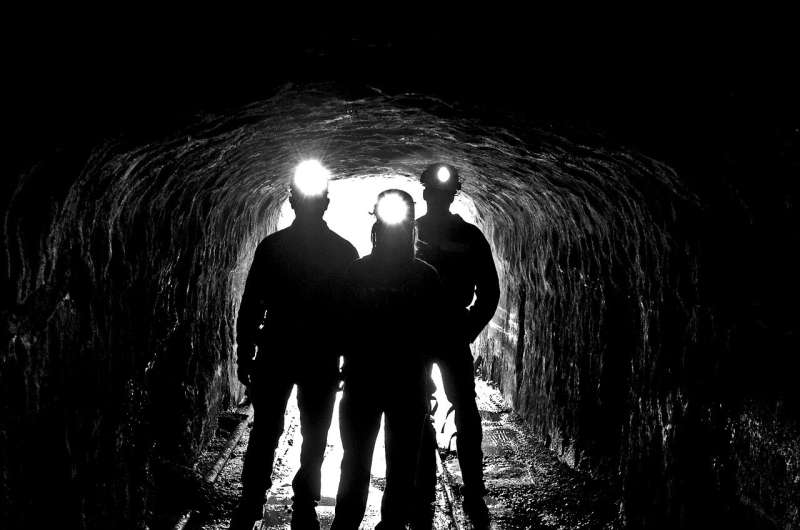This article has been reviewed according to Science X's editorial process and policies. Editors have highlighted the following attributes while ensuring the content's credibility:
fact-checked
proofread
Study finds non-medical factors, including proximity to a coal mine, may lead to worse recovery from stroke

Research presented at the Society of NeuroInterventional Surgery's (SNIS) 21st Annual Meeting highlights the role of socioeconomic variables and their role in successful recovery after stroke surgery, specifically the impact of living in a coal-mining county.
Strokes are most commonly caused by a large vessel occlusion, a blood clot that blocks a large blood vessel, cutting off significant blood flow to the brain. Thrombectomy, a minimally invasive procedure that uses a catheter to reopen this blocked artery, is the gold standard for treating this kind of stroke.
In their study, "Living in Coal Mining Areas Significantly Worsens Outcomes in Following Mechanical Thrombectomy for Acute Ischemic Stroke," researchers from the University of Kentucky reviewed medical records for all patients who received thrombectomies at one Kentucky hospital between 2015 and 2022.
Patients were stratified by county, with coal production status as the primary variable. Data on median income, rurality, food insecurity, as well as mental and physical disability were also examined from county census data. This was used to evaluate the patients' social determinants of health, non-medical factors that can influence individual health.
The researchers found that residents of coal-mining counties had lower median incomes, were more likely to live in rural areas, and had greater incidence of physical and mental distress than other residents. In addition, coal-county residents were more likely to experience food insecurity, have less access to a primary care provider and generally be significantly farther from health care facilities.
The analysis also showed that coal-county residents had longer times between stroke and thrombectomy (599.8 minutes vs. 454.8 minutes) and worse NIH Stroke Scale scores (which measure brain function after stroke) at the hospital and after discharge.
Researchers concluded that although thrombectomy is effective, patients from disadvantaged backgrounds still face worse outcomes due to underlying health challenges.
"Many non-medical factors can influence if and how you recover from stroke," said Zahraa Al-Sharshahi, MD, a neurosurgery resident at the University of Kentucky and the primary author of the study. "It's crucial to understand the importance of comprehensive care strategies that extend beyond acute treatment, so that we can achieve optimal health for all."




















